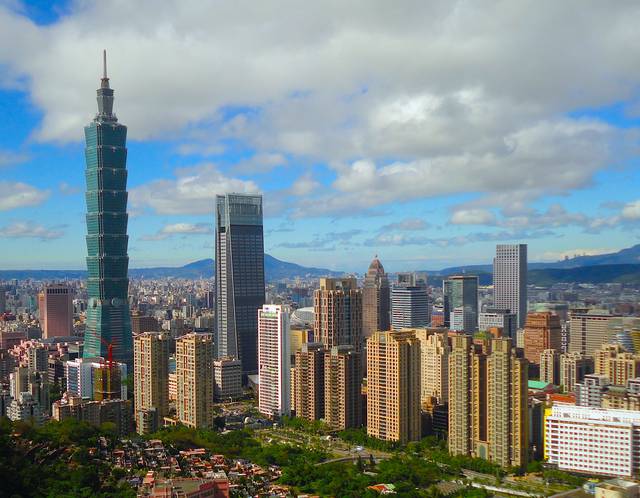
Taipei (台北 or 臺北; Tâi-pak in Minnan, Táiběi in Mandarin) is the national capital of the Republic of China, otherwise known as Taiwan. Sitting in the northern part of the island in a basin between the Yangming Mountains and the Central Mountains, Taipei serves as the island's financial, cultural, and governmental center. The city is a tantalizing mix of Chinese, Japanese and Western influences, vibrant in its own right yet unhurried by global standards. Besides the architectural and cultural landmarks like Taipei 101 and Longshan Temple, the xiaochi (small snacks) in bustling night markets are an experience not to be forgotten by your stomach. The capital is also a great jumping off point for day trips to hot springs, old mining towns and national parks around the Northern Taiwan area.
Taipei is a fast-growing city, but despite the pressure on land, a park is never far away, especially in the suburban areas. The downtown area is culturally divided into East and West. The west side, with its narrow streets and road side vendors, is considered the bastion of old Taipei life, whereas East Taipei, with its bustling supermalls, chic boutiques, stylish restaurants and classy cafes, reminiscent of those found in Tokyo, Seoul, Paris or New York City represents its metamorphosis.
The Greater Taipei metropolitan area beyond Taipei City boundaries includes the surrounding New Taipei City (新北市) and Keelung (基隆市), representing the largest urban cluster in Taiwan with nearly 7 million people, though run by three different government authorities.
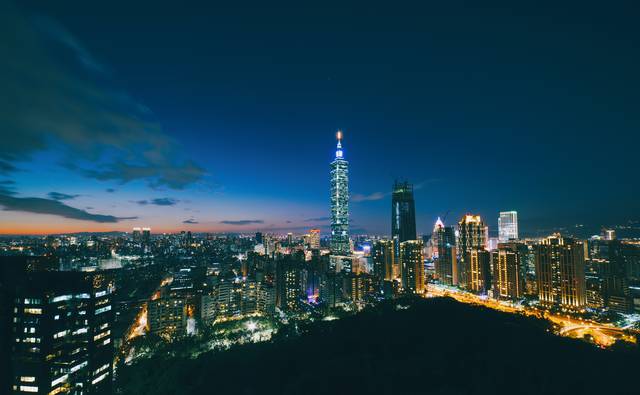 In 1884, the Qing dynasty governor of Taiwan, Liu Mingchuan, decided to move the prefecture capital to Taipei. With the construction of government offices and the influx of civil servants, Taipei's days as a sleepy market town were over. When Taiwan was granted provincial status in 1885, Taipei remained the provincial capital. As Taipei is in the north of Taiwan (the closest area to Japan), the city continued to thrive when Taiwan was ceded to Japan in 1895. However, as Japan was in the throes of a 'modernize-come-what-may' period, little regard was paid to Taipei's traditional Chinese-style architecture, and many of the old buildings, including the city walls, were demolished. Nevertheless, several Qing Dynasty structures, including the old North Gate, the former Provincial Administration Hall and several temples still survive. In addition, several distinctive buildings were constructed in the city under Japanese rule - these include the Presidential Palace and National Taiwan University.
In 1884, the Qing dynasty governor of Taiwan, Liu Mingchuan, decided to move the prefecture capital to Taipei. With the construction of government offices and the influx of civil servants, Taipei's days as a sleepy market town were over. When Taiwan was granted provincial status in 1885, Taipei remained the provincial capital. As Taipei is in the north of Taiwan (the closest area to Japan), the city continued to thrive when Taiwan was ceded to Japan in 1895. However, as Japan was in the throes of a 'modernize-come-what-may' period, little regard was paid to Taipei's traditional Chinese-style architecture, and many of the old buildings, including the city walls, were demolished. Nevertheless, several Qing Dynasty structures, including the old North Gate, the former Provincial Administration Hall and several temples still survive. In addition, several distinctive buildings were constructed in the city under Japanese rule - these include the Presidential Palace and National Taiwan University.
The city's architecture again suffered a major onslaught when the KMT government arrived from mainland China in 1945. In order to cope with the influx of millions of mainland refugees, temporary housing estates sprang up all around the city. Later, these were replaced by Soviet-era style (or 'no-style') concrete apartment buildings, which characterized Taipei's landscape for decades. Many of these building still survive, but as Taiwan's economy took off and people became more affluent, a brighter and bolder city began to emerge from the 1980s. New districts were established, tree lined boulevards were laid, high quality apartment blocks constructed, and chic and stylish cafes and restaurants opened.
The Taipei of today is rated as one of the planet's wealthiest and most innovative cities, and is characterized by its friendly people and safe streets. While it is not usually high on the list of tourist destinations, in reality it is a fascinating place to visit and live, and Taipei's local cuisine has deservedly earned its place among Asia's finest. Furthermore, despite its size, Taipei does not have any rough areas that are considered unsafe, even at night - which in itself is attractive.
Taipei has a semi-tropical climate characterized by hot and humid weather. The most comfortable season to visit is the fall, when the rainfall is at its lowest and the temperatures average a pleasant mid 20 °C. February to April are particularly damp with little sunlight, while the summers can be very hot, but often punctuated by heavy thunder showers. Taipei is prone to typhoons from May to October, though the highest concentrations are in August and September. Winters can be quite chilly, with temperatures occasionally falling below 10 °C at night, though snowfall has never been known to occur except on very rare occasions at higher elevations in Yangmingshan National Park.
- Taiwan Tourism Bureau – The official Tourism Bureau website.
- Taipei Travel Net – The official travel guide from the Taipei City Government.
Taiwan Tourism Bureau – The official Tourism Bureau website.
Taipei Travel Net – The official travel guide from the Taipei City Government.
Taipei is a city of people from many different origins, and you can find a good mix of mainland Chinese (people whose families migrated to Taiwan from 1949 onwards) and native Taiwanese (people whose families had been in Taiwan since the Qing Dynasty). While Mandarin is the lingua franca, and is spoken and understood by most people under the age of 60, other Chinese "dialects" are commonly heard as well. Among the native Taiwanese, while speakers of Minnan form the majority, there is also a significant number of Hakka-speaking native Taiwanese living in Taipei.
English is compulsory in all Taiwanese schools, and most people under the age of 40 will have at least a basic grasp of English, though few are fluent. Learning some Mandarin and/or Minnan will make your trip much smoother.
Those who take the time to visit and look around will soon find that Taipei is just as vibrant as any other major city, and is full of a certain charm which makes it unique in its own right. Just spend a day wandering around Taipei's streets and you will start finding many surprises.
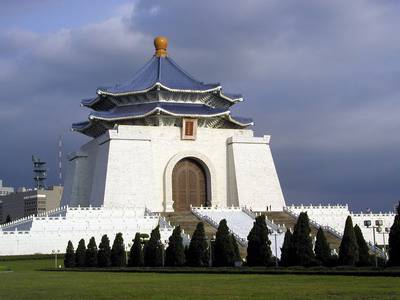 Several memorial halls like the Chiang Kai-shek Memorial Hall in Zhongzheng District and Sun Yat-sen Memorial Hall in Xinyi commemorate the most recognized leaders of the Nationalists to the lesser known war dead in the Martyrs' Shrine in Zhongshan District. All three have honor guards which change at set hours, demonstrating military precision and solemn respect for the ROC leaders and soldiers before them. Built in the middle of large parks, the memorial halls are also good places for some quiet reflection.
Several memorial halls like the Chiang Kai-shek Memorial Hall in Zhongzheng District and Sun Yat-sen Memorial Hall in Xinyi commemorate the most recognized leaders of the Nationalists to the lesser known war dead in the Martyrs' Shrine in Zhongshan District. All three have honor guards which change at set hours, demonstrating military precision and solemn respect for the ROC leaders and soldiers before them. Built in the middle of large parks, the memorial halls are also good places for some quiet reflection.
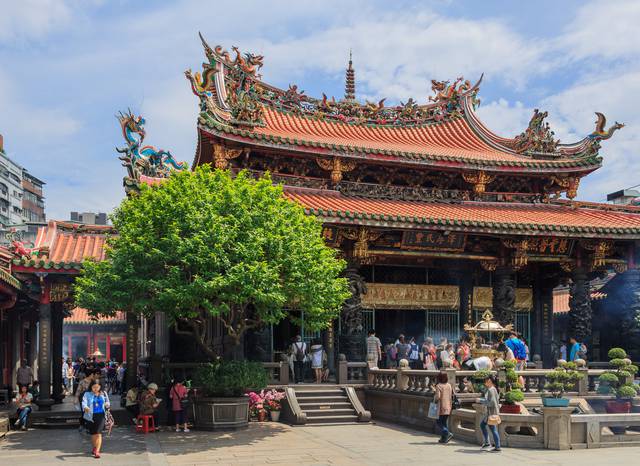 While Taipei is largely secular, the elaborate Taoist and Buddhist temples such as Longshan Temple and Bao'an Temple in the older districts of Wanhua and Datong still draw locals who maintain the old rituals and traditions. On the glitzier side of town, Taipei 101 may have relinquished its tallest building status but remains a very popular attraction for its architectural style and observatory deck. On New Year's Eve, Taipei 101 becomes a beacon of lights and fireworks.
While Taipei is largely secular, the elaborate Taoist and Buddhist temples such as Longshan Temple and Bao'an Temple in the older districts of Wanhua and Datong still draw locals who maintain the old rituals and traditions. On the glitzier side of town, Taipei 101 may have relinquished its tallest building status but remains a very popular attraction for its architectural style and observatory deck. On New Year's Eve, Taipei 101 becomes a beacon of lights and fireworks.
Anyone with even the slightest interest in Chinese history should visit the National Palace Museum in Shilin, which holds the singular best collection of historical artifacts from China, expertly curated by its staff. It is large enough that only one percent of what it owns is displayed at any one time, chief among them ancient paintings, scrolls, books and ceramics that span over 5000 years. The National Museum of History in Zhongzheng also holds valuable relics. Unfortunately, the National Museum of History is closed for renovations until 2021. There are other quirky little private museums such as the Miniatures Museum (Adult NS$200) and Museum of Drinking Water for more off-beat exploration.
Art in classical and contemporary forms can be appreciated too, in the Taipei Fine Arts Museum and the Taipei MOCA. Local artists have gathered in various artist villages to find inspiration and cultural centers like Huashan Cultural Center are interesting informal spaces for a creative spark. Taiwanese auteurs dream of becoming the next Ang Lee, displaying their independent films in the Spot-Taipei Film House. All these can be found in Zhongshan.
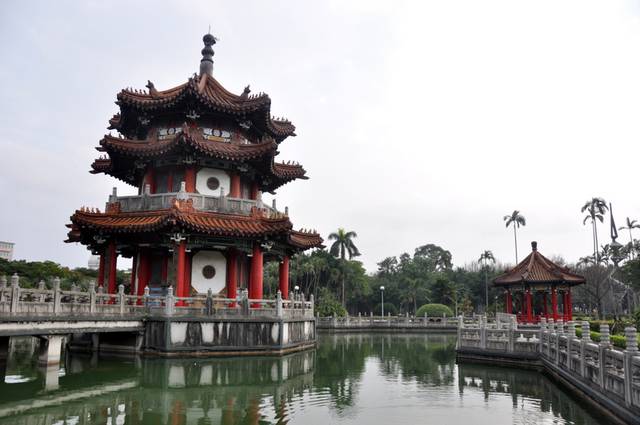 If the cityscape gets a little dreary, there are plenty of parks to escape to. Daan Park is one of the largest in the city, earning the moniker of Taipei Central Park. 228 Peace Park in Zhongzheng was named to remember the bloody 228 Incident of 28 February 1947 and also holds the National Taiwan Museum and the 228 Memorial Museum. A few green spaces can also be found along the banks of the Keelung River, such as Zhongshan District's Dajie Riverside Park.
If the cityscape gets a little dreary, there are plenty of parks to escape to. Daan Park is one of the largest in the city, earning the moniker of Taipei Central Park. 228 Peace Park in Zhongzheng was named to remember the bloody 228 Incident of 28 February 1947 and also holds the National Taiwan Museum and the 228 Memorial Museum. A few green spaces can also be found along the banks of the Keelung River, such as Zhongshan District's Dajie Riverside Park.
Visit the Taipei Zoo in Wenshan to see giant pandas, brown bears and gorillas for a low, low price. It's more akin to a walk in a leafy park, where animals are free to roam around in their open enclosures. Combine it with a ride up on the Maokong Gondola, which has a few special glass-floor carriages, to relax further in the hilltop teahouses.
_Taipei_North_Gate_-_panoramio_(1)-fuuQn.medium.jpg) Even though very little ancient architecture remains in Taipei, four of Taipei's five original city gates still stand. The city walls which surrounded the old city and the West Gate were demolished by the Japanese to make way for roads and railway lines. Of the four gates still standing, the Kuomintang renovated three of them in its effort to "sinicize" Taipei and converted them from the original southern Chinese architecture to northern Chinese palace style architecture, leaving only the North Gate (beimen 北門 or more formally Cheng'en men 承恩門) in its original Qing Dynasty splendor today. Long obstructed by a busy elevated freeway, the freeway was decommissioned and removed in 2016, and a park has been built around the gate.
Even though very little ancient architecture remains in Taipei, four of Taipei's five original city gates still stand. The city walls which surrounded the old city and the West Gate were demolished by the Japanese to make way for roads and railway lines. Of the four gates still standing, the Kuomintang renovated three of them in its effort to "sinicize" Taipei and converted them from the original southern Chinese architecture to northern Chinese palace style architecture, leaving only the North Gate (beimen 北門 or more formally Cheng'en men 承恩門) in its original Qing Dynasty splendor today. Long obstructed by a busy elevated freeway, the freeway was decommissioned and removed in 2016, and a park has been built around the gate.
Hot springs (溫泉) come in various brands in Taipei, ranging from basic natural pools, to plush spas at five star hotels. The three main places to have a soak in the Greater Taipei area are: Beitou (北投), Wulai (烏來) and Yangmingshan National Park (陽明山). The basic free 'rub and scrub' type public baths are run by the city. Most hotels offer the option of a large sex-segregated bathing area that generally consists of several large baths of various temperatures, jacuzzi, sauna and steam bath and also private and family rooms. Some hotels also have outdoor baths (露天溫泉), which offer restful views over the surrounding countryside. Prices range from around NT$300 to NT$800.
The law in Taiwan states that for safety reasons, individuals are not allowed to bathe in the private rooms, and there must be at least two people. Etiquette requires that bathers thoroughly wash and rinse off their bodies before entering public baths, do not wear clothing (which includes swimwear, though this is not the case for mixed-sex public areas) and tie up their hair so that it does not touch the water. Finally, people with high blood pressure, heart disease or open wounds should not enter the baths.
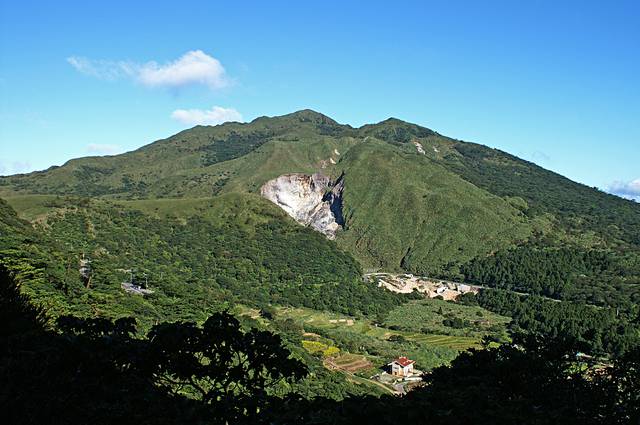 The mountains around Taipei make hiking is a popular exercise in the city. The main hiking spot closest to the city is the Four Beasts Mountain which border Xinyi and Nangang. One of the most rewarding walks is on Elephant Mountain, where steep steps lead up to several different viewpoints that give a striking contrast between Taipei 101 and its neighboring low-rise buildings, especially against the orange hues of sunset. Continuing on separate trails will head towards the remaining 'beasts' of Leopard, Lion and Tiger, and Nangang mountain and Jiuwufeng beyond them.
The mountains around Taipei make hiking is a popular exercise in the city. The main hiking spot closest to the city is the Four Beasts Mountain which border Xinyi and Nangang. One of the most rewarding walks is on Elephant Mountain, where steep steps lead up to several different viewpoints that give a striking contrast between Taipei 101 and its neighboring low-rise buildings, especially against the orange hues of sunset. Continuing on separate trails will head towards the remaining 'beasts' of Leopard, Lion and Tiger, and Nangang mountain and Jiuwufeng beyond them.
- Yangmingshan National Park. A favourite destination, particularly during spring when thousands of calla lilies, peonies and cherry blossoms bloom in the valleys. Besides that public hot springs, as well as hot sulphur blow holes and sources are equally worth the visit. There are dozens of hiking trails in the park, most marked out on maps from the visitors centre. Qixingshan is the highest peak in Yangmingshan, and looks out over the Taipei Basin and the north coast.
Yangmingshan National Park. A favourite destination, particularly during spring when thousands of calla lilies, peonies and cherry blossoms bloom in the valleys. Besides that public hot springs, as well as hot sulphur blow holes and sources are equally worth the visit. There are dozens of hiking trails in the park, most marked out on maps from the visitors centre. Qixingshan is the highest peak in Yangmingshan, and looks out over the Taipei Basin and the north coast.
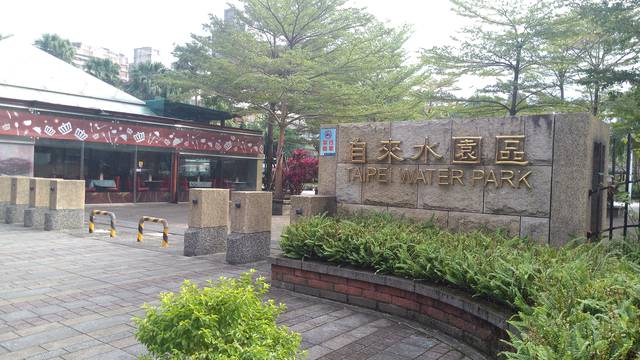 There are a few amusement parks around Taipei. One is the Children's Recreation Center in Shilin, great for younger kids. The Taipei Water Park near Museum of Drinking Water in Gongguan is also a good place to spend time during summer, with its water slides and swimming areas.
There are a few amusement parks around Taipei. One is the Children's Recreation Center in Shilin, great for younger kids. The Taipei Water Park near Museum of Drinking Water in Gongguan is also a good place to spend time during summer, with its water slides and swimming areas.
Taipei hosts numerous festivals throughout the year, but as many follow the lunar calendar the dates according to the Gregorian calendar are inconsistent. Check the Taiwan Tourist Bureau's events section before planning to attend an event.
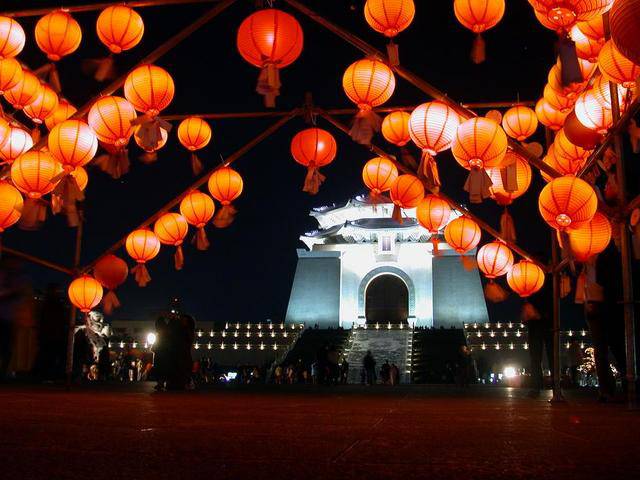
- The Lantern Festival is a dazzling display of lanterns and lasers which runs for several days around the fifteenth day of the lunar new year. While the main city event is held at the Sun Yat-Sen Memorial Hall and Taipei City Hall grounds, Renai Road perhaps offers the most elegant display, with the whole tree-lined boulevard transformed into a delicate tunnel of lights. Pingxi in New Taipei City celebrates the festival with the release of huge lanterns that float serenely across the night sky, carrying with them the dedications and aspirations of those who release them.
- Dragon Boat Festival commemorates the death of the Chinese patriotic poet Qu Yuan (born 340 BC), who drowned himself in a river out of despair that his beloved country, Chu, was being plundered by a neighboring country as a result of betrayal by his own people. The festival is marked by races of colorful dragon boats held at various locations throughout the island, with one of the best places to view a race in the Taipei area being the Bitan River in Xindian. Special sticky rice balls called zongzi (pronounced like "dzongdz") are also eaten on this day. The festival falls on the fifth day of the fifth lunar month.
- Golden Horse Chinese Language Film Festival. Often referred to as the Oscars of the Chinese film world, while films in the awards section are all in Chinese, they have English subtitles and there is also a large non-competition foreign language section.
- Taipei Film Festival. An international festival with two award sections – Taipei Award Nominees and International New Talent Nominees. Films are shown at several venues throughout the city.
- Taipei Pride Parade.
The Lantern Festival is a dazzling display of lanterns and lasers which runs for several days around the fifteenth day of the lunar new year. While the main city event is held at the Sun Yat-Sen Memorial Hall and Taipei City Hall grounds, Renai Road perhaps offers the most elegant display, with the whole tree-lined boulevard transformed into a delicate tunnel of lights. [[Pingxi]] in [[New Taipei City]] celebrates the festival with the release of huge lanterns that float serenely across the night sky, carrying with them the dedications and aspirations of those who release them.
Dragon Boat Festival commemorates the death of the Chinese patriotic poet Qu Yuan (born 340 BC), who drowned himself in a river out of despair that his beloved country, Chu, was being plundered by a neighboring country as a result of betrayal by his own people. The festival is marked by races of colorful dragon boats held at various locations throughout the island, with one of the best places to view a race in the Taipei area being the Bitan River in [[Xindian]]. Special sticky rice balls called zongzi (pronounced like "dzongdz") are also eaten on this day. The festival falls on the fifth day of the fifth lunar month.
Golden Horse Chinese Language Film Festival. Often referred to as the Oscars of the Chinese film world, while films in the awards section are all in Chinese, they have English subtitles and there is also a large non-competition foreign language section.
Taipei Film Festival. An international festival with two award sections – Taipei Award Nominees and International New Talent Nominees. Films are shown at several venues throughout the city.
Taipei Pride Parade.
It has been said that Los Angeles has no center. In contrast, one could say that Taipei is all center, and as such it has been given the epithet - "the emporium without end." Basically, however, the main shopping area can be divided into two districts: East and West. West Taipei is the old city and is characterized by narrow streets packed with small shops. East Taipei boasts wide tree lined boulevards and the biggest shopping malls are in this area.
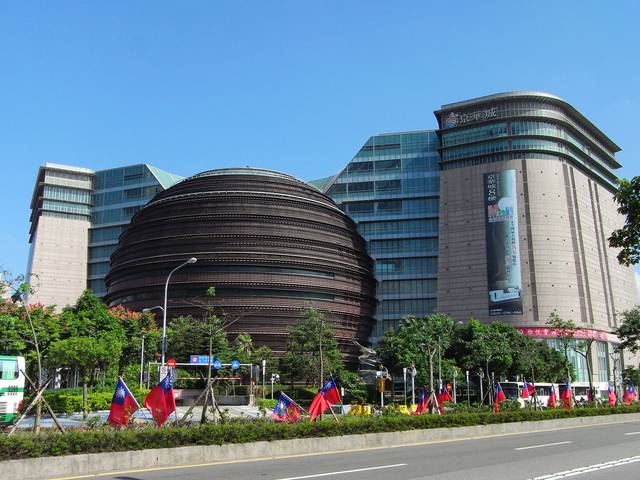 The busiest part of East Taipei is in between MRT Zhongxiao Dunhua Station and MRT Sun Yat-Sen Memorial Hall Station (Bannan Line). The axis of this shopping area is Zhongxiao East Road, Sec. 4, which is surrounded by numerous of department stores. SOGO has three branches in this area, mainly sales various of boutique. Another notable one is Mingyao Department Store which has the flagship store of Uniqlo in it. East Taipei is also famous for the small stores inside the alleys. On the other hand, Daan Road in the other side of the area, has more elegant clothing shops.
The busiest part of East Taipei is in between MRT Zhongxiao Dunhua Station and MRT Sun Yat-Sen Memorial Hall Station (Bannan Line). The axis of this shopping area is Zhongxiao East Road, Sec. 4, which is surrounded by numerous of department stores. SOGO has three branches in this area, mainly sales various of boutique. Another notable one is Mingyao Department Store which has the flagship store of Uniqlo in it. East Taipei is also famous for the small stores inside the alleys. On the other hand, Daan Road in the other side of the area, has more elegant clothing shops.
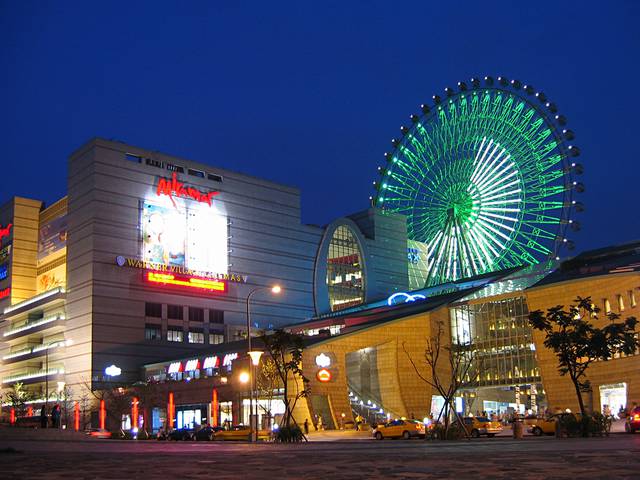 Xinyi is arguably the premier shopping area in Taipei, if not all of Taiwan, and is anchored by a number of department stores and malls. Key among them is Taipei 101 Mall, as part of the larger Taipei 101 complex. Eslite Mall is an upscale market-style shopping center with a 24 hour bookshop (with a good English selection) on the second floor and ethnic music store in basement. For absolute luxury, try Bellavita Shopping Mall or Breeze Center. Songshan has some shopping malls with distinctive architectural features, such as the 'Death Star'-like Core Pacific Living City and the Miramar Entertainment Park, which sports a giant ferris wheel along with an IMAX theater.
Xinyi is arguably the premier shopping area in Taipei, if not all of Taiwan, and is anchored by a number of department stores and malls. Key among them is Taipei 101 Mall, as part of the larger Taipei 101 complex. Eslite Mall is an upscale market-style shopping center with a 24 hour bookshop (with a good English selection) on the second floor and ethnic music store in basement. For absolute luxury, try Bellavita Shopping Mall or Breeze Center. Songshan has some shopping malls with distinctive architectural features, such as the 'Death Star'-like Core Pacific Living City and the Miramar Entertainment Park, which sports a giant ferris wheel along with an IMAX theater.
Ximending, the area with youth For trendier fashion catering to youths, check out Ximending (西門町) in Wanhua just west of Downtown. If it's pink, plastic, and imported from Japan, you can probably find it on sale in a store. Sneakerheads will also find shoe stores with the latest limited releases here in sneaker-crazy Taipei, though you need to get a number and wait in a queue buzzing with anticipation. Several night markets don't just sell food but also have a large variety of clothing, handbags and more, like Shida Night Market near the university areas in Gongguan and Shilin Night Market.
As the sales headquarters for many homegrown multinational electronics manufacturers (including Asus, Garmin and Acer among others), good bargains and unique models can be found in Taipei. Those interested in picking up inexpensive electronic goods and cameras should wander the lanes and alleys around Kaifeng Street and Zhonghua Road, as well as the malls connected to Taipei Main Station.
Computer buffs will enjoy a visit to Guanghua Digital Plaza (光華數位新天地). Specializing in computer and electronic goods, this market has the largest number of stalls selling hardware and software under one roof in Taiwan, and all at very competitive prices. K-Mall, in the former Asiaworld department store on the east side of Shinkong Mitsukoshi, specializes in electronics of all kinds and is a location for large companies such as Asus, Samsung, Benq, and Acer to showcase their newest products. The Taipei Zhongshan Metro Shopping Mall (Easy Mall) is a long underground shopping area that houses several stores selling all manner of items, not necessarily limited to electronics. A few stores in the Easy Mall carry current and vintage video games, hardware and software.
For jade, flowers and jewelry in one central location, check out the Jianguo Holiday Market in Daan. There are actually three different markets, the Weekend Jade Market, Weekend Flower Market and Weekend Handicrafts Market in this same location. As the names suggest, they are open only on weekends until 18:00. The Chinese Handicraft Mart in Zhongzheng is also good for handicrafts.
Wanhua's Dihua Street, Bopiliao Old Street and Snake Alley night market are throwbacks to the older days of Taipei, back when herbal remedies and aphrodisiacs were extremely popular. Pottery enthusiasts will enjoy a visit to Yingge in New Taipei City. Its old street is a crescent of beautiful pottery shops interspersed with coffee shops and tea houses.
Zhongshan North Road (中山北路) is a tree-lined boulevard featuring numerous international and local brands. Gucci and Louis Vuitton are among the brands who operate stores along this street. This road, particularly along the second section, is also famous for its numerous wedding picture studios and gown boutiques. It is possible to find a great deal for wedding portraits here as competition is stiff.
Go to just north of the junction with Zhongxiao West Rd on Zhongshan North Rd, sec 1 (west side of the road) for trekking and backpacking stores selling a wide range of high quality equipment, and you'll be ready for all the outdoor hiking that Taipei and Taiwan offers.
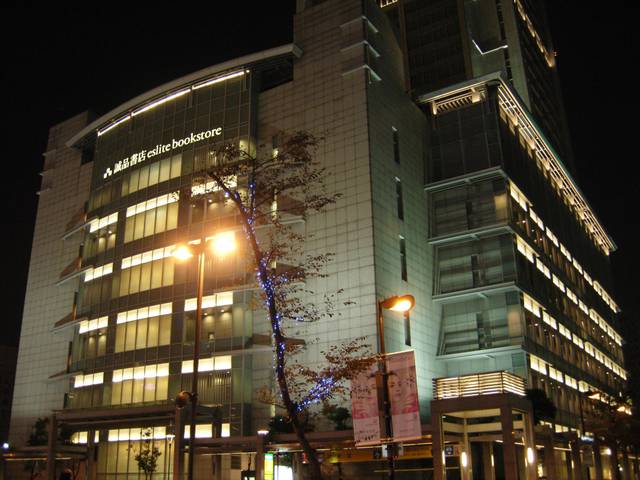
Taipei has great book shops, and roads such are Chongqing South Road are packed with stores specializing in Chinese language books. The Station Front Area (站前) is a section of downtown Taipei just south of the Taipei Railway Station. It is a bustling area filled with shops and stores of all kinds, but it is particularly well known for its high concentration of bookstores due to the bloom of bushibans (also known as cram schools).
The following book stores all have good selections of English titles:
- Eslite, +886 2 2775-5977. (誠品) – Eslite offers a good selection at most of their branches, although the 24 hour flagship store (2F, 245 Dunhua South Rd. has the best selection. Eslite Book Store and shopping mall (11 Songgau Road), which incidentally is the largest book store in Taiwan, have the greatest selection. The Songgau Rd branch is next to MRT Station 'Taipei City Hall'.
- Caves Books (敦煌) has two branches (54-3 Zhongshan North Road, Sec 2, near Yuanshan MRT Station. tel +886 2 2599-1166). This is a temporary location, while the old store is demolished and rebuilt. The other branch (5, Le 38, Tianyu St, Tianmu. Tel: +2 886 2874-2199) is one of the original book stores in Taipei specializing in English titles. And, although it has been surpassed by the newer arrivals, it is still a good place to pick up a popular novel and English language textbooks.
- Lai Lai, 4F, 271 Roosevelt Road, Sec 3, +886 2 2363-4265. This shop has a small but interesting selection of English material.
- Crane Publishing Company, 200 Section 2, Jinshan S Rd, Da’an District, +886 2 2393-4497. Specialists in English language textbooks and teaching material.
- Bookman Books, Room 5, 2F, 88 Xinsheng South Road, Sec 3, +886 2 2368-7226. This is an excellent collection of English literature books, albeit a little expensive.
- Mollie Used Books, 12, Alley 10, Lane 244, Roosevelt Road sec 3, +886 2 2369-2780. You'll find a reasonable selection of English titles here.
NB: In order to protect the environment, a government policy rules that plastic bags cannot be given freely at stores in Taiwan, but have to be bought (NT$1) - bakeries being an exception as the items need to be hygienically wrapped. Re-usable canvas and nylon bags are sold at most supermarkets.
Eslite, +886 2 2775-5977. (誠品) – Eslite offers a good selection at most of their branches, although the 24 hour flagship store (2F, 245 Dunhua South Rd. has the best selection. Eslite Book Store and shopping mall (11 Songgau Road), which incidentally is the largest book store in Taiwan, have the greatest selection. The Songgau Rd branch is next to MRT Station 'Taipei City Hall'.
Caves Books (敦煌) has two branches (54-3 Zhongshan North Road, Sec 2, near Yuanshan MRT Station. tel +886 2 2599-1166). This is a temporary location, while the old store is demolished and rebuilt. The other branch (5, Le 38, Tianyu St, Tianmu. Tel: +2 886 2874-2199) is one of the original book stores in Taipei specializing in English titles. And, although it has been surpassed by the newer arrivals, it is still a good place to pick up a popular novel and English language textbooks.
Lai Lai, 4F, 271 Roosevelt Road, Sec 3, +886 2 2363-4265. This shop has a small but interesting selection of English material.
Crane Publishing Company, 200 Section 2, Jinshan S Rd, Da’an District, +886 2 2393-4497. Specialists in English language textbooks and teaching material.
Bookman Books, Room 5, 2F, 88 Xinsheng South Road, Sec 3, +886 2 2368-7226. This is an excellent collection of English literature books, albeit a little expensive.
Mollie Used Books, 12, Alley 10, Lane 244, Roosevelt Road sec 3, +886 2 2369-2780. You'll find a reasonable selection of English titles here.
Taipei probably has one of the highest densities of restaurants in the world. Almost every street and alley offers some kind of eatery. Of course, Chinese food (from all provinces) is well-represented. In addition, Thai, Vietnamese, Japanese, Korean and Italian cuisines are also popular. Basically, East Taipei, especially around Dunhua and Anhe Roads, and also the expat enclave of Tianmu are where to clash chopsticks with the rich and famous, whereas West Taipei offers more smaller, homey restaurants.
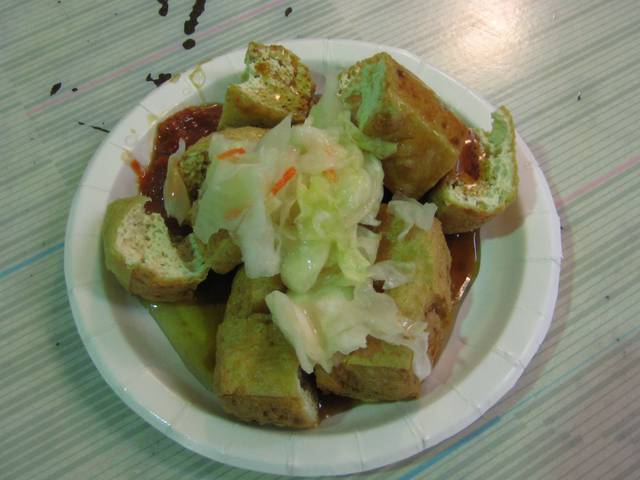 There are several night markets (夜市) in each district. Some are open during daytime, and all are open until around midnight. Night markets consist of restaurants and stores at the permanent locations and little booths along the center. Every night market has a huge variety of food, so a visit to any one is a good bet for good food.
There are several night markets (夜市) in each district. Some are open during daytime, and all are open until around midnight. Night markets consist of restaurants and stores at the permanent locations and little booths along the center. Every night market has a huge variety of food, so a visit to any one is a good bet for good food.
A lot of Taiwanese street food hasn't actually originated from Taipei, but any popular xiaochi (small snack) eventually makes their way up to the capital. Some of the best known night market snacks are: oyster vermicelli (蚵仔麵線; ô-á mī-sòa), oyster omelet (蚵仔煎; ô-á-chian), fried chicken fillet (雞排; jīpái), stinky tofu (臭豆腐; chòudòufǔ) and aiyu jelly (愛玉冰; ài-yù-bīng) among a long list of others. Because of the vast selection, the recommendation is to go with a few people and share the food. Otherwise, honestly the best way to eat is to join the longest queue in the market, or just buy whatever catches your eye! Vendor food is generally safe to eat, but use common sense though if you have a sensitive stomach.
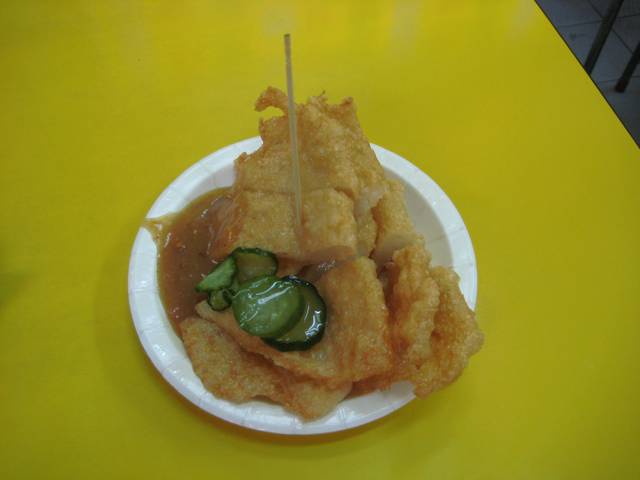 The most famous one in Taipei is the Shilin Night Market (士林夜市). It is easily accessible via the MRT at either the Jiantan (劍潭) or Shilin (士林) stations. Locals in Taipei view Shilin as touristy, with food catering to the tastes of mainland visitors. Another excellent option is Ning Xia Night Market (寧夏夜市) in Datong near the Taipei Circle (建成圓環) and accessible via the MRT at Zhongshan (中山) station. Raohe Street Night Market (饒河街觀光夜市) is also a viable option. It is a mere stone's throw away from the Songshan (松山) railway station.
The most famous one in Taipei is the Shilin Night Market (士林夜市). It is easily accessible via the MRT at either the Jiantan (劍潭) or Shilin (士林) stations. Locals in Taipei view Shilin as touristy, with food catering to the tastes of mainland visitors. Another excellent option is Ning Xia Night Market (寧夏夜市) in Datong near the Taipei Circle (建成圓環) and accessible via the MRT at Zhongshan (中山) station. Raohe Street Night Market (饒河街觀光夜市) is also a viable option. It is a mere stone's throw away from the Songshan (松山) railway station.
While it might be possible to spend all your dinners at night markets, Taipei also has plenty of sit-down restaurants with more substantial dishes. For upmarket Taiwanese cuisine, which revolves around the mild yet flavorful trio of basil, garlic and chili, in addition to white rice or sweet potato congee (no wheat-based products for example), try Ching-yeh Aoba in Zhongshan or Shinyeh Table in Daan. But for more down-to-earth experiences, don't forget to go to one of the many "hot fry" (熱炒) restaurants in Taipei where the locals go to eat Taiwanese food and drink beer and kaoliang. Be prepared for a noisy atmosphere, tiny seats, lots of empty beer bottles and excellent food at a low price.
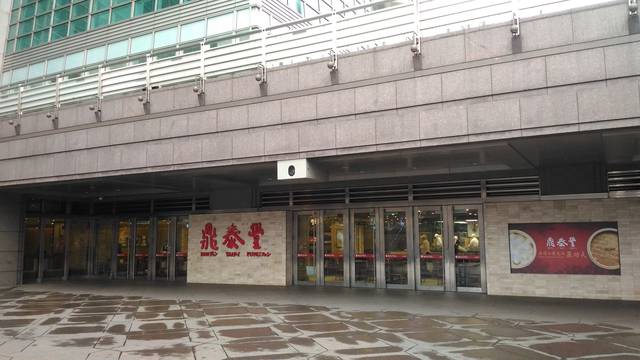
The influx of KMT migrants perhaps makes Taipei one of the easiest places to sample a quality spread of Chinese provincial cuisines. Xiaolongbao (小籠包) or soup dumplings is a Shanghainese dish made famous by Din Tai Fung, whose first storefront at Xinyi Road remains heavily patronised by fans of the world-wide franchise. They have many branches all over the city too, though their branch at Taipei 101 is also extra crowded. Around the corner from Xinyi Road is Yongkang Street, which boasts quite a mix of old and new restaurants like Kaochi or Jin Ji Yuan. Both serve xiaolongbao, along with other dishes such as fried chicken, good alternatives for when the queue to Din Tai Fung is an hour long.
Beef noodle soup is a national icon; Taipei even holds a yearly judging event every September to appraise competitors. There are two main types: hongshao (紅燒牛肉麵), a strongly flavored dish derived from Sichuan spicy bean paste and soya sauce braised beef, and qingdun (清燉牛肉麵), a clear light broth, although there are even tomato varieties popping up around the city. On Yongkang St alone, there're already two beef noodle shops, Yongkang Beef Noodle and Lao Zhang, which have their own regulars. Those more game to get to hard-to-find places can reward themselves at Lin Tung Fong in Zhongshan or the one at Taoyuan Street near Ximending.
Vegetarian food (素食) is also common fare, with the city boasting more than two hundred vegetarian restaurants and vendor stands. Another Taipei specialty is vegetarian buffets. They are common in every neighborhood, and unlike the 'all-you-can-eat' buffets listed below (which charge a set price, usually ranging from NT$250-350 including dessert and coffee/tea), the cost is estimated by the weight of the food on your plate. Rice (there is usually a choice of brown or white) is charged separately, but soup is free and you can refill as many times as you like. NT$75-120 will buy you a good-sized, nutritious meal. Many of these veggie restaurants are Buddhist in nature and so meals do not contain garlic or onion (which traditionalists claim inflames passion).
- Minder Vegetarian. This is a restaurant chain offering the above-mentioned vegetarian buffet. Aside from the usual line of vegetarian dishes, contemporary cuisine such as rice rolls, tempura and a range of desserts, all entirely vegetarian, are offered as well. Major branches in Taipei are available at Taipei Main Station 2F, Breeze Taipei Branch, No. 3, Beiping North Road, Eslite Bookstore B2, Xinyi Branch, Xinyi District, No. 11, Songgao Road and Eslite Bookstore B1, Dunhua South Branch, Da-an District, No. 245, Dunhua South Road, Sec. 1.
- Lotus Pavilion Restaurant, 153-155 Xinyi Rd B1, Sec. 4 (entrance in alley behind Changhwa Bank, +886 2 2703-5612. An upscale all-you-can-eat buffet.
- King Join, No 18 Shin-Wei Rd, +886 2-2701-3225. Traditional Chinese setting.
- For a special Taipei street experience, check out the veggie vendor outside No. 30, Lane 216, Zhongxiao East Road Sec. 4 (in the alleys behind the Dunhua South Road Eslite Mall and book store). The rice noodles are especially delicious and cheap and a plate of their dougan (dried tofu) makes a great side dish.
Minder Vegetarian. This is a restaurant chain offering the above-mentioned vegetarian buffet. Aside from the usual line of vegetarian dishes, contemporary cuisine such as rice rolls, tempura and a range of desserts, all entirely vegetarian, are offered as well. Major branches in Taipei are available at Taipei Main Station 2F, Breeze Taipei Branch, No. 3, Beiping North Road, Eslite Bookstore B2, Xinyi Branch, Xinyi District, No. 11, Songgao Road and Eslite Bookstore B1, Dunhua South Branch, Da-an District, No. 245, Dunhua South Road, Sec. 1.
Lotus Pavilion Restaurant, 153-155 Xinyi Rd B1, Sec. 4 (entrance in alley behind Changhwa Bank, +886 2 2703-5612. An upscale all-you-can-eat buffet.
King Join, No 18 Shin-Wei Rd, +886 2-2701-3225. Traditional Chinese setting.
For a special Taipei street experience, check out the veggie vendor outside No. 30, Lane 216, Zhongxiao East Road Sec. 4 (in the alleys behind the Dunhua South Road Eslite Mall and book store). The rice noodles are especially delicious and cheap and a plate of their dougan (dried tofu) makes a great side dish.
The nightlife in Taipei runs from boisterous night markets to equally exuberant clubs and bars, and indeed the city comes alive with glittering lights after the last rays of the sun leave the grey buildings.
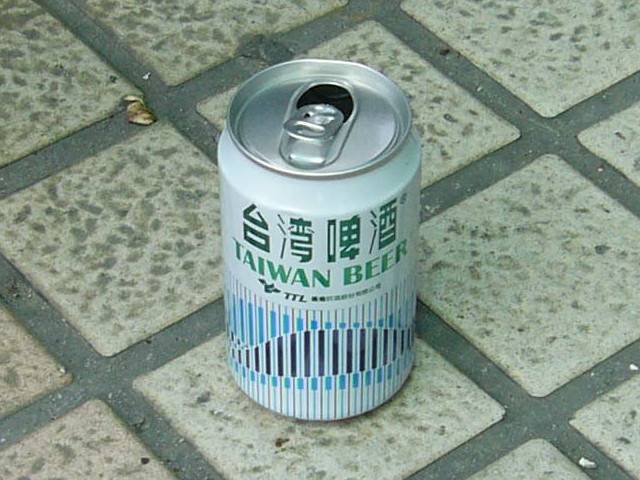 Xinyi is where the biggest and most flashy clubs are, especially the ATT4FUN Building which has an excellent view of Taipei 101, while smaller shophouses around the Taida and Shida university areas host live music gigs (although lessened after noise complaints). The "Combat Zone" in Zhongshan used to be the go-to district for US soldiers in the Vietnam War and remains fairly gritty with quite the collection of dive bars. The area around Red House Theater near Ximending has a large number of outdoor bars which are generally known to be gay-friendly. Visit the Taiwan Beer Bar, also known as Taipei Brewery, in Zhongzheng if you fancy trying cheap and fresh brews of the local favorite Taiwan Beer.
Xinyi is where the biggest and most flashy clubs are, especially the ATT4FUN Building which has an excellent view of Taipei 101, while smaller shophouses around the Taida and Shida university areas host live music gigs (although lessened after noise complaints). The "Combat Zone" in Zhongshan used to be the go-to district for US soldiers in the Vietnam War and remains fairly gritty with quite the collection of dive bars. The area around Red House Theater near Ximending has a large number of outdoor bars which are generally known to be gay-friendly. Visit the Taiwan Beer Bar, also known as Taipei Brewery, in Zhongzheng if you fancy trying cheap and fresh brews of the local favorite Taiwan Beer.
Cover charges are usually required for entry, but these will include a free drink at the very least, with some places even offering free flow of house pours for the whole night after payment. Wednesday nights are ladies' night in most venues.
Taiwan's speciality tea is High Mountain Oolong (高山烏龍, a fragrant, light tea) and Tieguanyin (鐵觀音, a dark, rich brew).
The mountainous Maokong area of Muzha in the Wenshan district of the city has dozens upon dozens of teahouses, many of which also offer panoramic views of the city. Its especially spectacular on a clear evening. A Maokong Gondola (cable car) system services the Taipei Zoo MRT station to Maokong. The S10 bus comes up from the Wanfang Community MRT station.
While traditionally a nation of tea drinkers, the Taiwanese have really embraced the cafe culture, and all the usual chains can be found here in abundance. For cafes with more character, roam the back streets near National Taiwan University between Xinsheng South Road and Roosevelt Road in Gongguan. More cafes are in the area around Renai Road, Section 4 and Dunhua South Road. There are also some interesting and characterful places between Yongkang Park and Chaozhou Street, and in the alleys around Shida Road. However, for a particularly impressive range of styles, visit Bitan in Xindian, where all the cafes offer restful views over the river and mountains beyond (though can be noisy during weekends).
- Chung-shan Hospital, 11, Lane 112, Renai Road, Sec. 4 (Nearest MRT: 'Zhongxiao-Dunhua' (a fifteen minute walk), +886 2' 2708-1166. A small hospital popular with expats
- Buddhist Tzu-chi Hospital, Jianguo Road, Xindian City, +886 2 6628-6336, +886 2 6628-9800. A very friendly and efficient hospital with an especially caring environment..
- Mackay Memorial Hospital, 92 Zhongshan North Road Sec. 2 (nearest MRT Station: Shuanglian, +886 2 2543-3535. One of the best hospitals in Taipei
- National Taiwan University Hospital, 1 Changde Street (Nearest MRT Station: NTU Hospital, +886 2' 2312-3456. One of Taiwan's largest and most famous hospitals
- Taiwan Adventist Hospital, 424 Bade Road Sec. 2, +886 2 2771-8151. This hospital has English-speaking staff.
- Yang-ming Hospital, 105 Yusheng Street, Shilin. Popular with the Tianmu expat community
Chung-shan Hospital, 11, Lane 112, Renai Road, Sec. 4 (Nearest MRT: 'Zhongxiao-Dunhua' (a fifteen minute walk), +886 2' 2708-1166. A small hospital popular with expats
Buddhist Tzu-chi Hospital, Jianguo Road, Xindian City, +886 2 6628-6336, +886 2 6628-9800. A very friendly and efficient hospital with an especially caring environment..
Mackay Memorial Hospital, 92 Zhongshan North Road Sec. 2 (nearest MRT Station: Shuanglian, +886 2 2543-3535. One of the best hospitals in Taipei
National Taiwan University Hospital, 1 Changde Street (Nearest MRT Station: NTU Hospital, +886 2' 2312-3456. One of Taiwan's largest and most famous hospitals
Taiwan Adventist Hospital, 424 Bade Road Sec. 2, +886 2 2771-8151. This hospital has English-speaking staff.
Yang-ming Hospital, 105 Yusheng Street, Shilin. Popular with the Tianmu expat community
The free iTaiwan is available all over the city – for more information read the country article. You need to (freely and easily) register to use it. Other WiFis like TPE-Free
Internet cafés are plentiful, especially in the maze of alleys between Taipei Main Station and Peace Park. However, you may have to wander around (and look up and down as many are on higher floors or in the basement) before finding one. Some computers are coin operated. Internet cafes are known as wang-ka in Chinese (a combination of wang, the Chinese word for 'net', and ka an abbreviation of 'cafe'). Below is a list of a few recommended internet cafes:
- .
- Aztec, 2F. 235 Zhongxiao East Road, sec. 4.
- LHH Cyber Cafe, 28 Guangfu South Road.
- Skywalker Multimedia Entertainment Center, B1, 119 Minsheng East Road, sec. 2..
Aztec, 2F. 235 Zhongxiao East Road, sec. 4.
LHH Cyber Cafe, 28 Guangfu South Road.
Skywalker Multimedia Entertainment Center, B1, 119 Minsheng East Road, sec. 2..
- Cathay Pacific (國泰航空) – +886 2 2715 2333
- China Airlines (中華航空) – +886 2 2715 1212
- EVA Airways (長榮航空) – +886 2 2501 1999
- KLM Asia (荷蘭皇家航空) – +886 2 2711 4055
- Delta (達美航空) – +886 2 2772 2188
- Singapore Airlines (新加坡航空) – +886 2 2551 6655
- Thai Airways (泰國航空) – +886 2 2509 6800
For up-to-date information on cheap flights, check the advertisement pages of one of the three local daily English newspapers (see 'Media' section below).
Cathay Pacific (國泰航空) – +886 2 2715 2333
China Airlines (中華航空) – +886 2 2715 1212
EVA Airways (長榮航空) – +886 2 2501 1999
KLM Asia (荷蘭皇家航空) – +886 2 2711 4055
Delta (達美航空) – +886 2 2772 2188
Singapore Airlines (新加坡航空) – +886 2 2551 6655
Thai Airways (泰國航空) – +886 2 2509 6800
Taiwan has a very free and liberal press. There are two daily local newspapers available in English, The China Post and Taipei Times. A third English-language newspaper Taiwan News (formerly China News) is no longer available on paper but continues to exist online Most media in Taiwan has a political slant; The China Post is more pan-blue while Taipei Times is more pan-green.
Free news and information are available from the following:
- Centered on Taipei is a free monthly designed for expats living in Taipei, but it is also very useful for visitors. It can be found in many of the major hotels throughout Taipei, and also in many businesses in the Tian Mu area.
- This Month in Taiwan is a free magazine that lists events and has an exhaustive directory of useful numbers in Taiwan. It can be found at tourist offices and major hotels.
- FTV English Edition – This show is an hour of English news shown on Channel 53 (2005) on the local TV station Formosa TV (FTV) at 23:00 every night. The program features 30 minutes of local news, as well as cultural events. The show is archived online.
- ICRT (short for "international Community Radio Taipei") is an English-language radio station available across Taiwan on FM 100. The programming consists mostly of popular music with hourly news bulletins throughout the morning, afternoon and early evening.
ICRT (short for "international Community Radio Taipei") is an English-language radio station available across Taiwan on FM 100. The programming consists mostly of popular music with hourly news bulletins throughout the morning, afternoon and early evening.
Mobile phone coverage is relatively good in Taipei. Among the major providers are Chunghwa Telecom (中華電信), Taiwan Mobile (台灣大哥大), Vibo (威寶電訊) and Far EasTone (遠傳電訊). Taipei has both GSM 900/1800 and 3G networks and roaming might be possible for users of such mobile phones, subject to agreements between operators. Most payphones work with telephone cards (電話卡) which are available at all convenience stores. Prepaid 1GB SIM cards can be purchased for about 500NT with a passport.
- Tourist Information Office: 9F, 290 Zhongxiao East Road., Sec. 4. TEL:2349-1500 – There is also a branch tourist office next to the ticket purchasing counters at Taipei Main Station, and near exit 16 in the Metro Mall underground shopping plaza that runs between MRT the Zhongxiao-Fushing and Zhongxiao-Dunhwa Stations.
- Tourist Information (emergency number) - Tel:+886 2 2717-3737.
All 24-hour convenience stores, such as 7-11 and Family Mart, have a flat screen monitor. With a USB, this monitor can be used to print documents on the store's photocopy machine.
All 24 hour convenience stores offer a reservation service. A flat screen monitor (usually near the check-out) has lists of trains, theater, and movie screenings. Once a reservation has been confirmed, payment can be made at the check-out in exchange for a ticket.
Taipei is one of the safest cities you will ever visit, and violent crime is extremely rare. However, as in many large cities, pickpockets operate in crowded areas, and so you should be vigilant in night markets.
Local police are a resource you can turn for help, and many officers speak at least basic English.
- Central Weather Bureau – In addition to giving a seven day forecasts for Taipei, this website also has detailed maps showing the path of an approaching typhoon and up-to-the-minute information of earthquakes, giving their location and magnitude.
- English-speaking police: +886 2 2555 4257 / 2556 6007
- Emergency numbers:
- Police: 110
- Ambulance, Fire brigade: 119
Central Weather Bureau – In addition to giving a seven day forecasts for Taipei, this website also has detailed maps showing the path of an approaching typhoon and up-to-the-minute information of earthquakes, giving their location and magnitude.
Emergency numbers:
- Police: 110
- Ambulance, Fire brigade: 119
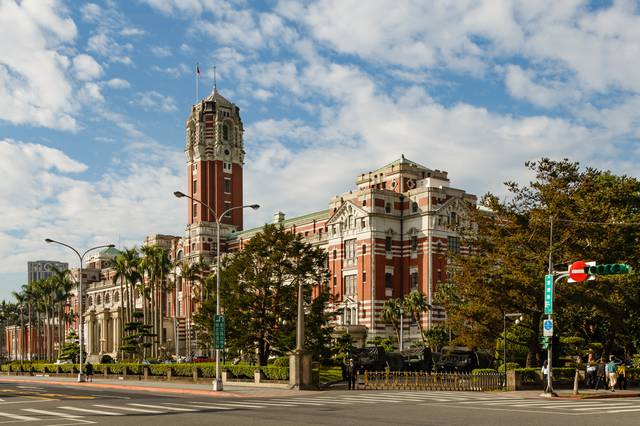
- National Immigration Agency, No.15, Guangzhou Street, Zhongzheng District, +886 2-23889393, +886 2-23899983. M-F 09:00-17:00. Visa applications/extensions for foreign residents of Taipei City should be made at this agency.
As the People's Republic of China (PRC) does not allow other countries to have diplomatic relations with both itself and the ROC on Taiwan, many of the world's nations do not have official embassies or consulates in Taiwan. However, as the PRC allows recognition of Taiwan as a separate economy, many nations maintain a "Trade Office', "Institute" or something of a similar name in Taipei. These missions usually perform limited consular activities, such as issuing visas.
The following countries maintain diplomatic relations with Taiwan and have embassies in Taipei.
National Immigration Agency, No.15, Guangzhou Street, Zhongzheng District, +886 2-23889393, +886 2-23899983. M-F 09:00-17:00. Visa applications/extensions for foreign residents of Taipei City should be made at this agency.
The excellent rail system means that day trips are easy to make, and there's lots to see around the New Taipei and Keelung area.
- Tamsui, an old port town northwest of Taipei, is the main scene of the Taiwanese movie-Secret by Jay Chou. It's very popular with tourists.
- Jiufen is a former gold mining town on the northeast coast is now a popular tourist destination.
- Banqiao is a town and administrative capital of the other city in the Taipei Metro Area, New Taipei City.
- Fulong is in the eastern coast of Taipei County. There you will find a coastal town with an excellent beach. Every July, don't forget to attend the three day Ho-hai-yan Rock Festival.
- Yingge is famous for its high concentration of potters and ceramic makers.
It's even possible to travel to anywhere along the west coast of Taiwan all the way to Kaohsiung and back within a day, although at the price of a high-speed rail ticket. The eastern parts are a little harder to get to, and Taroko Gorge warrants more than a night's stay anyway.
- Taroko Gorge – Here, the Liwu River cuts through 3,000-foot marble cliffs. The area around the gorge is also identified as Taroko Gorge National Park.
- Hsinchu is a city with an old heritage and modern science park.
- Shei-pa National Park spans mountains and rivers and is in Hsinchu County has great hiking trails. Hsinchu County is also home to Leofoo Village Theme Park, Taiwan's most popular amusement park.
- Sun Moon Lake in Nantou County is a crystal clear lake embedded into lush mountains.
- Tainan for a laidback atmosphere and in-depth look into the history of Taiwan.
[[Tamsui]], an old port town northwest of Taipei, is the main scene of the Taiwanese movie-Secret by Jay Chou. It's very popular with tourists.
[[Fulong]] is in the eastern coast of Taipei County. There you will find a coastal town with an excellent beach. Every July, don't forget to attend the three day Ho-hai-yan Rock Festival.
[[Taroko Gorge]] – Here, the Liwu River cuts through 3,000-foot marble cliffs. The area around the gorge is also identified as Taroko Gorge National Park.
[[Shei-pa National Park]] spans mountains and rivers and is in [[Hsinchu County]] has great hiking trails. Hsinchu County is also home to Leofoo Village Theme Park, Taiwan's most popular amusement park.
